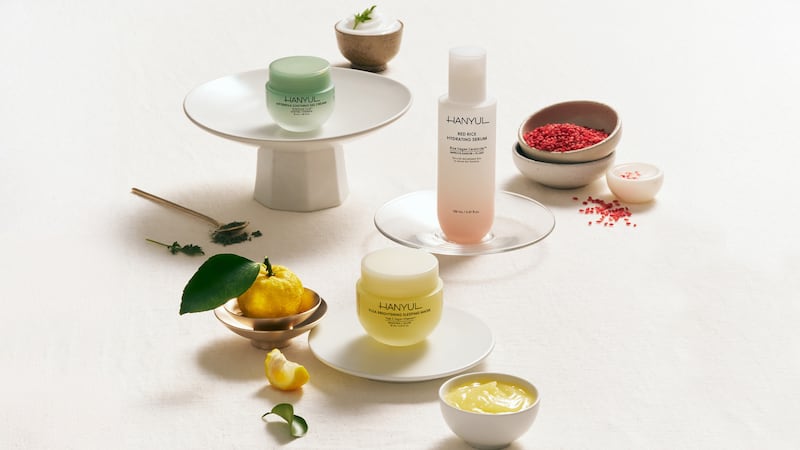When does one give up their beloved daily iced latte and look into coffee alternatives? If coffee is working well for you and your body, then there is no reason to cut back. “Coffee is not harmful in and of itself,” says Samantha Dieras, RN, DCN, director of ambulatory nutrition services at Mount Sinai Hospital. “The downsides [depend] on the amount that is being consumed and depend on the individual,” she explains. “Some people are highly sensitive to caffeine and therefore coffee or certain types of coffee may not work for them.”
But if you’re experiencing anxiety, irritability, digestive issues, and sleep disturbances when you indulge in a cup of joe, you may want to reconsider how much caffeine you’re drinking. She adds that women who are pregnant or breastfeeding and those with heart disease, high blood pressure, gastrointestinal issues, or dealing with anxiety should also consider limiting their caffeine intake. So if you prefer to boost your energy without adverse reactions, you’re in luck: There are plenty of coffee alternatives sure to brighten your day. And best of all, many of them—including green tea, guarana, and yerba maté—provide bonus health benefits as well.
Coffee alternatives for more energy, better sleep, and less stress
Giving up coffee doesn’t have to mean saying goodbye to a comforting morning ritual—in fact, sometimes, a hot sip of something less aggressive can surprisingly provide the same pick-me-up effects. Here, a peek at some of the best coffee alternatives that are either healthier, lower in caffeine, or entirely caffeine-free.
Black tea
Okay, so black tea is obviously not a caffeine-free drink, but an eight-ounce cup of brewed black tea typically contains about half as much caffeine as the same amount of coffee. Black tea derives its caffeine from tannins—a type of antioxidant-rich polyphenol also found in spices, chocolate, wine, and, yes, coffee. But the alkaloids in tea allow the body to absorb the caffeine much more slowly, lessening the chance of experiencing that annoying coffee crash. Best of all, tea contains a specific type of tannin polyphenol called ellagitannin, which has been shown to benefit the growth of healthy gut bacteria. It may even have anticancer properties.
Green tea
If you’re going to add one drink to your daily roster, please let it be green tea. Multiple long-term studies have found green tea to be one of the healthiest beverages on the planet. Among the well-documented evidence-backed benefits: a high amount of cancer-fighting and antioxidant-rich polyphenol called catechin and a high amount of the brain-boosting and stress-reducing compound L-theanine. Drinking green tea has also been linked to lower levels of obesity and heart disease and more balanced blood-sugar levels, and it seems to contribute to better longevity. It may even help reduce damage to the skin from the sun. Just remember, green tea is not caffeine-free, but it does contain much less than coffee: One eight-ounce cup contains about one third to one half less. Some studies suggest that green tea’s high levels of L-theanine even work synergistically with caffeine to create a more balanced—i.e. less crazed and jittery—effect.
Matcha
Think of matcha as superpowered green tea: It’s the leaves of the same plant, simply grown and consumed in a slightly different way. Matcha is traditionally grown in the shade—which allows the plant to develop more antioxidant-rich and amino-rich compounds—and then pulverized and mixed with water instead of steeped. Because you’re consuming the plant’s whole leaf, you’re reaping more of the aforementioned benefits of green tea. That means you’re also getting more caffeine than what’s in regular green tea: One cup of matcha contains about 70 mg of caffeine versus green tea’s typical 35 mg. Still, that’s a lot less than one cup of coffee—and remember, you’re also getting the previously mentioned balancing benefits of L-theanine. So, drink up!
Yerba maté
This traditional South American drink makes a great coffee alternative—but beware, it contains only slightly less caffeine than coffee. That said, maté’s other benefits are too great to ignore. Obtained from the dried and ground leaves of Ilex paraguariensis—a plant known for its diuretic and purifying properties, as well as its high levels of polyphenols and natural antioxidants—it has excellent stimulating properties and has been found to improve memory and attention span. Some studies have found its antioxidative benefits to be very similar to green tea, and it also contains trace amounts of vitamin C, thiamine, riboflavin, vitamin B6, potassium, calcium, magnesium, phosphorus, manganese, and iron. It’s also been found to potentially improve athletic performance and may even help the body burn fat.
Guarana
You may know guarana as the active plant extract found in many energy drinks, but it’s originally from the Amazon basin and has been consumed in Brazil for centuries. And though it does contain high levels of caffeine, it also has a ton of beneficial health properties thanks to naturally occurring anti-inflammatory compounds, antioxidants, and polyphenols. Guarana contains theophylline (also found in black tea) and theobromine (also found in chocolate), which create a synergistic, cognitive-performance-boosting effect. Plus, the compounds in guarana have been shown to possibly slow the growth of cancer cells, help manage cholesterol levels, provide pain relief, and contribute to antiaging effects. It may even reduce heavy menstrual bleeding and treat digestive disorders. Just proceed carefully: Guarana has a lot of caffeine, so a little bit goes a long way.
Mushroom Coffee
The flavor of coffee with the benefits of adaptogenic mushrooms? Yes, please. Mushroom coffee usually contains ground coffee enhanced with medicinal mushrooms like chaga and cordyceps for an added adaptogenic boost—and best of all, most mushroom coffees contain half as much caffeine as traditional bean brews. It also tastes so delicious you probably won’t even notice the mushrooms at all. While the science is still not 100%, the possible benefits of the adaptogens in mushrooms include increased resistance to stress, better immune function, and improved cognitive states. Additionally mushrooms contain minerals such as potassium, selenium, phosphorus, and magnesium, as well as B vitamins and antioxidants.
Hot Water With Lemon
Okay, okay, this one is simple—but as we all know, sometimes, simple is best. Anyway, drinking hot water with lemon first thing in the morning is a beloved detoxifying ritual and may just be the ideal replacement for your usual morning cup of joe. Its beauty is in its ease: It’s hydrating, doesn’t contain caffeine, and can help jump-start the digestion process first thing. It also has a host of other benefits, including vitamin C, vitamin B, calcium, iron, magnesium, potassium, and enzymes. Some studies show that lemon has minerals that help lower our blood pressure, which supports our overall health, and it may even have some mental health benefits.
Green Juice
When made with whole foods like spinach and kale, green juice can be a natural source of iron, which registered dietitian nutritionist Lauren Manaker explains is essential for supporting your energy levels and combating brain fog, sluggishness, and other symptoms of iron deficiency.
Her pro-tip: opt opt for a green juice with no added sugars and mix your green juice with a source of vitamin C (she likes a squeeze of lemon) to enhance iron absorption.
Real Milk
One of the many benefits of milk is that it plays a vital role in energy production. Manaker says that milk contains vitamin B12, which can help support your focus and keep your energy levels up. She also points to studies that show milk’s hydrating properties to support energy levels and help you function throughout the day. Milk also provides carbs and four B vitamins, which can fuel muscles during workouts and help convert foods into energy. If you’re lactose-intolerant, she says that lactose-free milk can provide all the same benefits.
Chicory Root Coffee
Chicory root is known for its rich coffee-like taste, says Manaker, without having the caffeine side effects. It contains a complex sugar called inulin that supports gut health and may help maintain steady energy levels due to its ability to balance blood sugar levels.
Cacao
Manaker says that cacao has enough caffeine in it for you to get your fix without going overboard. (“Plus, it helps kick a chocolate craving,” she adds). It contains a compound theobromine, which is similar to caffeine but gentler on the body. “[It] provides a smoother, more sustained sense of alertness,” she says. “It primarily supports circulation and relaxation of the muscles, making it less likely to disrupt sleep or cause nervousness.”
What are the effects of coffee on the body?
Caffeine is a natural stimulant that affects the brain and the nervous system to increase alertness and delay fatigue. For these reasons, it’s obviously super helpful when you want to feel or stay awake. And of course, coffee does have its share of health benefits. But it can also be tricky: About 15 to 30 minutes after coffee intake, many people experience the dreaded caffeine crash—a decrease in the energizing effects that results in tiredness, which is the opposite of what you want! This can create a vicious cycle, as the need to drink more caffeine to counteract the effect arises again and again.
And an overdose of caffeine can definitely create several unpleasant effects on the body and mind. Among the most common? Jitters, heartburn, and poor sleep quality. This is especially true if you consume coffee on an empty stomach—which, let’s face it, many of us are definitely guilty of doing regularly—because caffeine stimulates the stomach cells to release digestion-aiding hydrochloric acid, which can be harmful without the presence of food. Consuming too much caffeine can also reduce the body’s ability to stabilize cortisol and melatonin levels, which in turn can create chronic stress and prevent us from getting our all-important z’s.
What happens to your body when you stop drinking coffee?
Manaker says that quitting coffee or any caffeine source can trigger withdrawal symptoms. You may experience headaches, fatigue, irritability, and difficulty concentrating as your body adjusts to reduced caffeine levels.
Dieras recommends gradually reducing your coffee intake as opposed to cutting it off completely. “[This] may help to alleviate uncomfortable side effects,” she explains. The adjustment period can take anywhere from four to six weeks, and she says to stay hydrated throughout and listen to your body when going through this transition.








